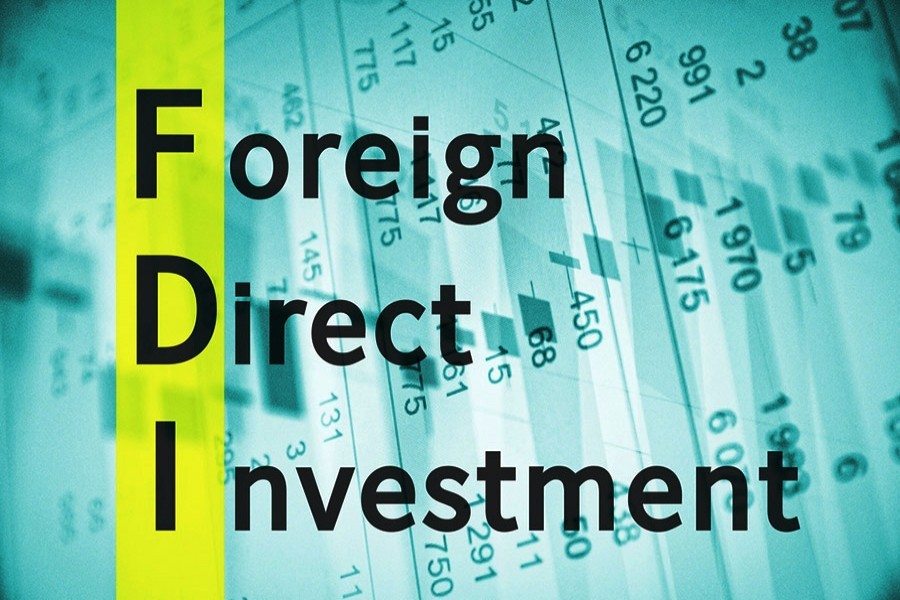The problem of inadequate inflow of foreign direct investment (FDI) was identified long ago and enough remedies too were suggested from time to time. But no notable improvement in the situation has yet taken place. By now, a number of competing countries have however improved their individual scorecard significantly. Vietnam, to cite an example here, attracted FDI nearly six times and Myanmar about four times the amount Bangladesh did in 2016. And this trend is still persisting.
There has been no disagreement between experts belonging to both public and private institutions, policymakers and businesses that FDI should get top priority in the government's policymaking. All possible initiatives should, therefore, be taken to remove the hurdles to greater inflow of FDI. The policymakers have been claiming that incentives offered to foreign investors by this country are highly attractive and they (foreign investors) should feel themselves quite comfortable, in a comparative perspective, about putting in their money in business projects and programmes in Bangladesh. But contrary to such claims, FDI flows into the country in trickles.
Factors such as high cost of doing business, bureaucratic complexities, uncertainty over policy support, high corporate tax and uneasy political climate were identified as major barriers to a moderate-to-large level of FDI inflow. The relevant government agencies say they have done enough, including making of a number of laws and rules, to help boost FDI flows to the country. Yet the foreign investors have remained unimpressed. Speakers at a pre-budget discussion meeting held at the headquarters of the National Board of Revenue (NBR) late last week felt the need for finding real reasons behind foreign investors' lukewarm attitude towards investments in Bangladesh. It is not difficult for them to know the reasons. Local entrepreneurs could be very appropriate sources of information in this connection. The real-life experience of local entrepreneurs while doing business could provide a vast wealth of information on the hurdles to investment. The hard truth is that the relevant agencies are aware of most problems and they, for reasons best known to them, are not particularly serious about resolving those. Foreign investors, prior to opting for their investment destination, take into cognisance first the experience of local investors. Bangladesh cannot offer much on that account.
While noting other barriers to investment, a number of public agencies felt the need for incorporation of fiscal incentives for foreign investors and removal of fiscal barriers, if there is any, in the next national budget. They singled out the high corporate tax rate as a major disincentive to both local and foreign investment. The issue of high corporate tax comes to the fore whenever investment is discussed. That the government is caught in a dilemma over the corporate tax is quite evident from the policymakers' statement issued from time to time. Heavy reliance on this in view of its failure to collect enough of tax revenues from other avenues remains a major problem. Yet the authorities should find ways to reduce the corporate tax rates side by side taking necessary measures to ease regulatory framework for foreign investment.
The country is also deficient in a couple of other areas -- workers' skill, infrastructural facilities and productivity -- that foreign investors consider critically before making their investment decisions. Finding suitable land at a reasonable cost remains yet another area of concern for investors --both local and foreign. The government has to look into all such issues hindering investment and resolve those with all seriousness. The country has fallen far behind others in attracting FDI inflows because competing countries have been offering more incentives to prospective investors. The trend needs to be reversed.


